
The Metro Theatre Center Foundation is a proud supporter of Pacific Standard Time: LA/LA 2017–2018. PST: LA/LA is a series of film screenings and filmmaker conversations, film restorations, online content, educational initiatives, and a publication exploring the shared influences of Latino and Latin American filmmakers and the work they created or presented in Los Angeles during the past half-century. Visit pstlalaoscars.org for more information.
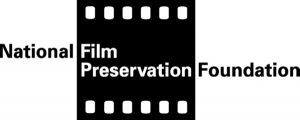
The Metro Theatre Center Foundation has won a grant to preserve the JFK and RFK films on film
The films we acquired from Dan Sassa of JFK and RFK, shot by his grandfather, Augustus Sassa, and featured on NBC’s The Today Show are now going to be preserved on film. On November 13th 2013, just weeks before the commemoration of the death of President Kennedy, the very first short glimpses of this material were introduced on The Today Show by NBC correspondent Andrea Mitchell, along with presidential historian Michael Beschloss, who called this cache of films the most important discovery of Kennedy material in 25 years. Now the world will be able to see all 38 minutes of this material for the first time. Read the article on Today News.
The 8mm Kodachrome originals will be blown up to a 16mm internegative, and prints will be struck from the negative, thanks to a grant from The National Film Preservation Foundation. Although we have already made high resolution digital scans of the material, this does not guarantee long term survival and access of the films.
No one knows how long digital files will survive and be viable. They are not considered by the international preservation community to satisfy the definition of “archival” (the material must be accessible and be able to be presented or copied in the same form and look as the original). We have only had digital technology for about 25 years, but we have had film for more than 125 years, and we know that film is an archival medium because it can be viewed and copied more than a century after its creation.
The Metro Theatre Center Foundation is pleased to announce that the materials produced under this grant will be assure the safety and long-term existence of the Augustus Sassa Collection of JFK and RFK home movies, shot by Sassa, and saved by his grandson, Dan.
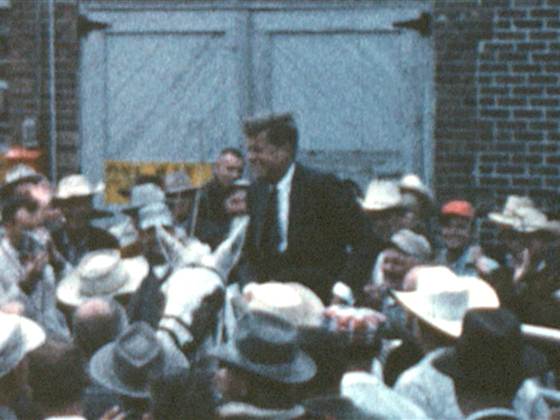
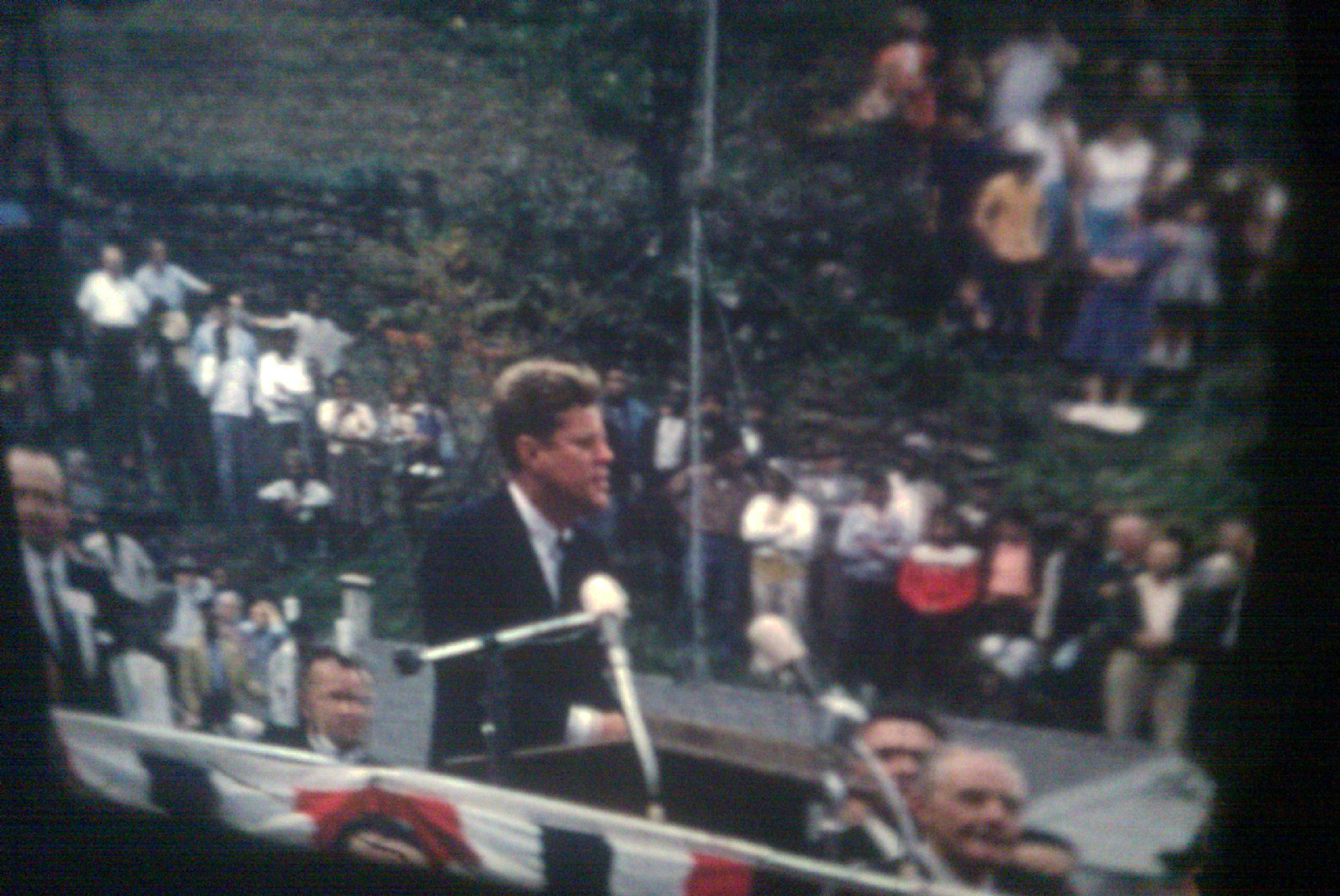
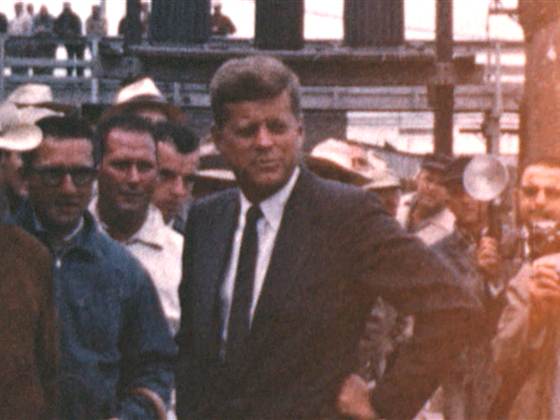
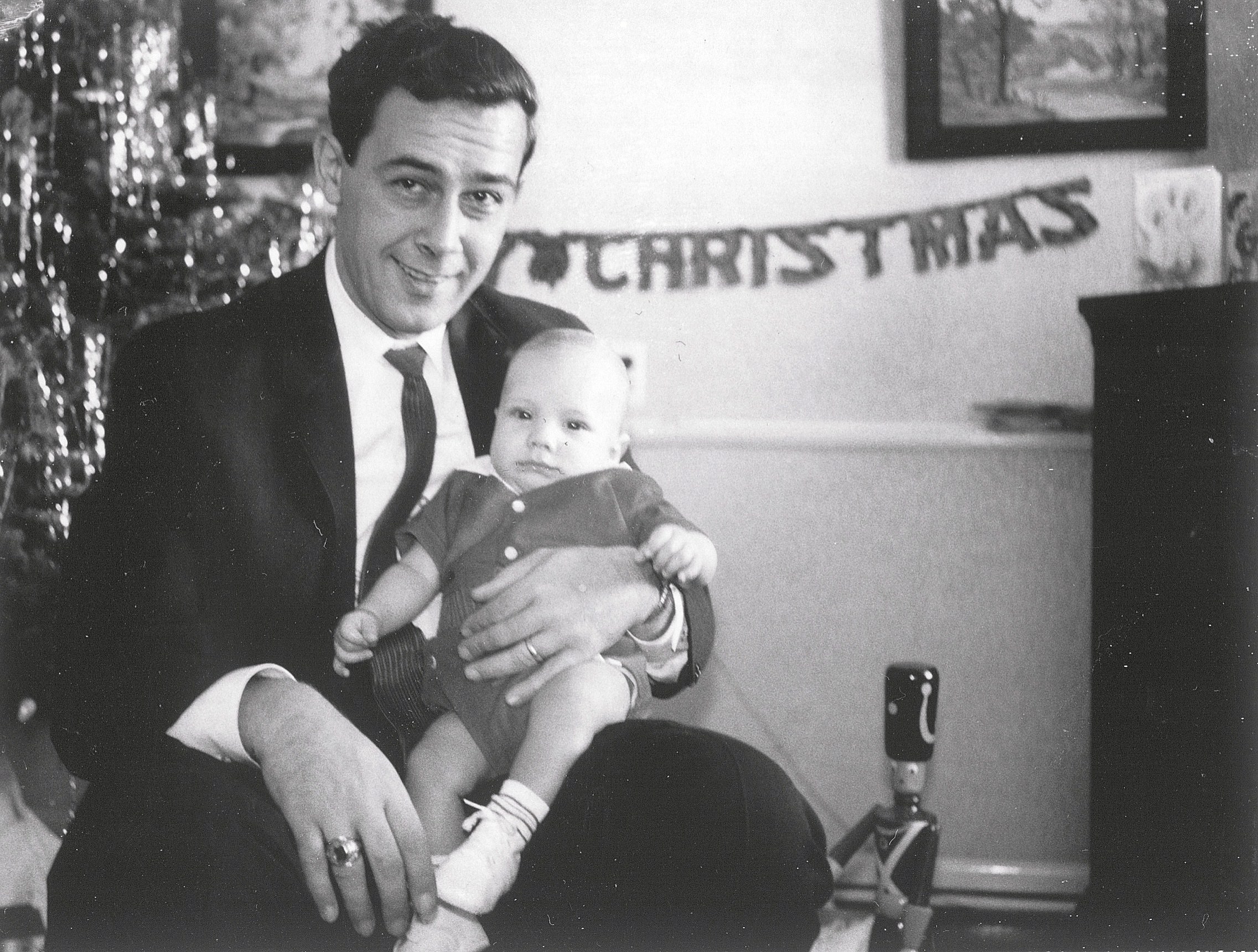
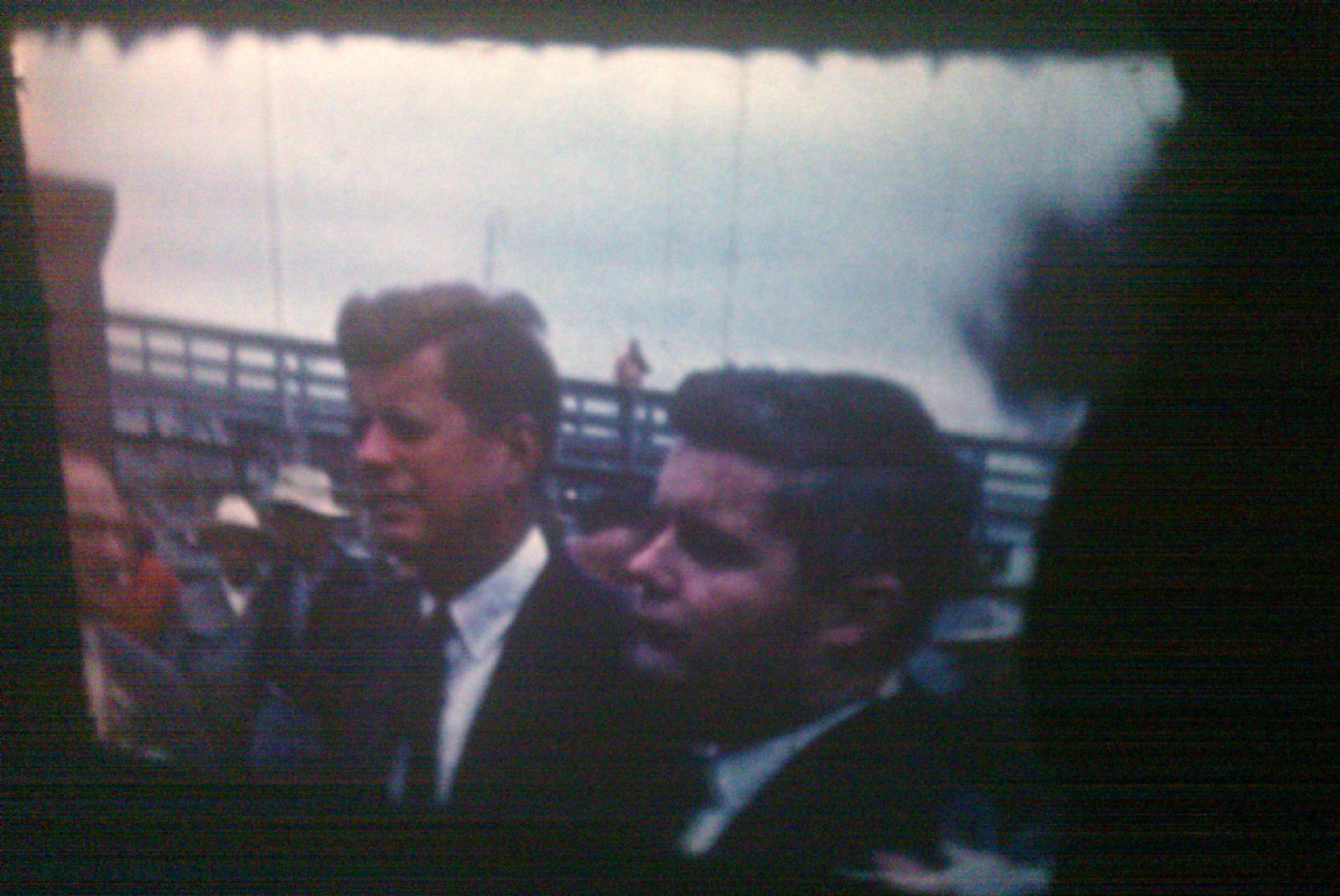
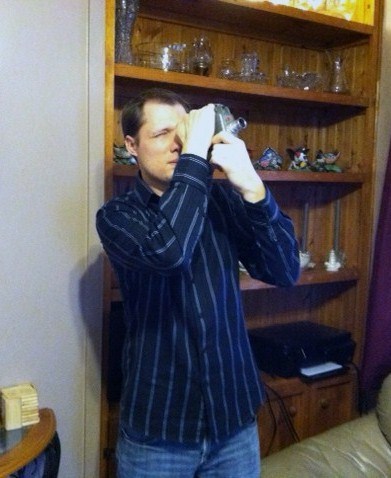
After the laboratory work by 8mm blow up specialist Michael Hinton, the 8mm originals will be returned to The Academy of Motion Picture Arts and Sciences Film Archives in Hollywood. The 16mm materials will be placed at different archives in the USA for preservation. Digital copies will also be deposited with those archives to allow the public to research and study these very rare and unusual home movies of the Kennedys.
We are very pleased to have received this grant from The National Film Presentation Foundation, and we thank them for their support of this important film preservation project.
Please contact me if you have any films that you want preserved. Every foot of film is a precious piece of our collective experience.
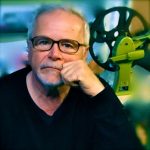
Ron Merk
Director of Film and Cultural Programs
The Metro Theatre Center Foundation
Looking To the Future by Preserving the Past
As part of our five-year initiative to preserve historically and culturally significant home movies, we have located and acquired more than 2000 collections of 8mm, super 8 and 16mm home movies, from the USA and around the world. It is important to remember that “past is prologue” and without an understanding of the past, it’s places and people and events, we would go blindly into the future. Because so much of our collective history, especially personal history, is stored on home movies that were shot in many gauges of film and video, we really must work to save these precious documents of who we were before they are lost to deterioration.
As part of our project to save these amazing films, we have acquired a state-of-the-art film scanner that digitizes the films in HD 1080p resolution, and makes them available for study and research, and possible use by filmmakers in new projects, for the first time since these films ran through the cameras. Indeed, these are all camera originals, the very film that was shot by families and their resident camera experts, from as early as 1923.
In October of 2013, we located 38 minutes of never-before-seen footage of President John F. Kennedy and his brother, Senator Robert F. Kennedy, which was seen on the NBC Today Show on November 15, 2013, with our very own Director of Film and Cultural Programs, Ron Merk, explaining how the films were discovered and how they will be preserved and made available for study and research.
A year ago, the foundation entered into an agreement with the archives of The Academy of Motion Picture Arts and Sciences, to deposit all of the original films elements in their state-of-the-art temperature and humidity controlled film vaults for long-term storage and preservation. We also are providing them with digital copies of all the films so that researchers, journalists and students can view the films. This partnership with the Academy Film Archives assures a long and rich life for these films, one that will keep them vibrant and safe, and continually in the eyes of the public.
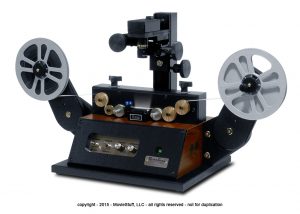
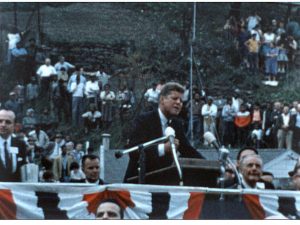
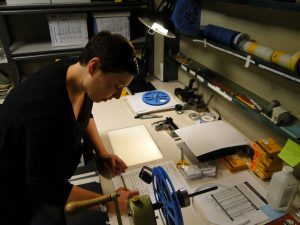
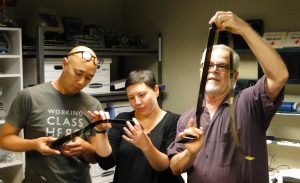
A second partnership was formed in June of last year, with The Center for Asian American Media, which provided us with an office and other support for our film scanning project. We are very pleased to be working with Stephen Gong and Davin Agatep and other CAAM staff to support their Memories to Light Project, and the preservation of Asian-American Home movies.
All of this costs money and time. The more support we have from the public, the more films we can locate and preserve. So, please think about making a donation to our foundation, either by check or PayPal. We are a 501 (3) non-profit and donations are tax deductible to the extent provided by applicable law.
Look for some clips from our amazing home movie collection on this website soon.
Yours truly,

Shelly Bergren
Executive Director
The Metro Theatre Center Foundation
Proud to have assisted these organizations with their efforts
The Academy of Motion Picture Arts and Sciences Film Archive

The first 12 boxes of rare and unusual home movies from our Preservation Project Partnership project was recently delivered to the Academy Film Archive for long-term storage, preservation and study. There the films will be maintained under the ideal storage conditions of the archive, and a digital copy made available to the public for study and research. Thanks to Mike Porzelski, Fritz Herzog and Lynne Kirste for their gracious cooperation.
University of North Carolina School of the Arts
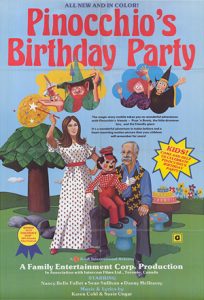
A rare 35mm print of what was considered a “lost film,” and incidentally one directed by our own Ron Merk, was located recently thanks to The University of North Carolina School of the Arts. They graciously provided a print of “Pinocchio’s Birthday Party,” made in 1973 by Ron to our collection at The Academy Film Archive. No 35mm materials were thought to have survived for this film, but we are pleased to announce that this lost film has been found, and will be preserved for screening and study. As a thank you we donated a 35mm splicer to their film preservation program. Special thanks to David C. Spencer, Senior Curator of the Moving Image Archives, Assistant Professor of Cinema Studies, School of Filmmaking, U.N.C. School of the Arts.
University of South Carolina
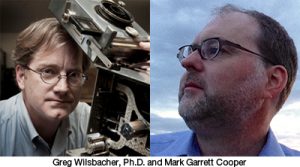
The foundation made two major donations. The first is a collection of 35mm nitrate negatives and positive outtakes and alternative takes from the films of The Western Electric Company (part of the Bell Telephone System) made during the 1930s and 40s. These materials will be made available for study and use by filmmakers. The University of South Carolina has extensive an extensive newsreel collection, which it is preserving, and we are very happy that these materials have found a home.
We also donated a 35mm film projector that allows for forward and reverse projection, at any speed, for use in screening and study of specific films in the University of South Carolina collections. The projector, which is a special design, was used by a film optical company in Northern California, and was rescued and restored by our foundation for long-term use by the University of North Carolina’s Media Studies program. The projector is currently installed and bringing many films to light. It is essential that such equipment is maintained and continues to be in service to the film preservation community. Thanks to Greg Wilsbacher, Ph.D., Curator, Newsfilm Collections and Mark Garrett Cooper, Ph.D., Interim Director, Moving Image Research Collections, Professor, Film & Media Studies and English.
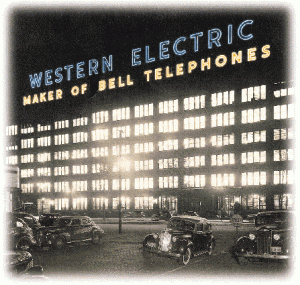

The U.C.L.A. Film and Television Archives
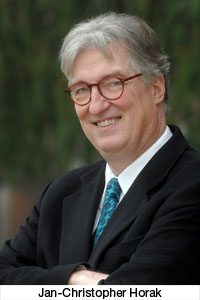
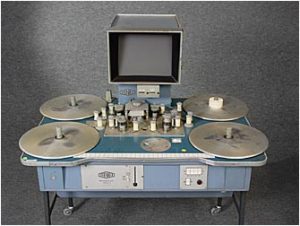
Film handling and editing equipment is becoming more and more important to the work of film preservation organizations. With the move to digital technologies, most film equipment manufacturing companies simply have no market for their products, and many have simply stopped making film-handling equipment. The biggest problem that has resulted from this decision is that much of the equipment that was previously supported by parts and repairs by these companies can no longer be kept in service, and “extra” pieces of the same equipment must be relied upon for spare parts.
The foundation has recently donated a large collection of film viewing and handling equipment to the UCLA archives. This includes two 35mm Steenbeck editing machines, one with a CinemaScope and normal screen, and one with a normal screen. These machines were the standard for editing film before digital technology replaced them. We also donated 35mm and 16mm splicers, synchronizers, sound readers and other unique film handling equipment and supplies. Jan-Christopher Horak, Ph.D. in his thank you message to our foundation, told us how important these machines would be to the work of the archives, and said that he felt they had “come home.”
Larkin Street Youth Services
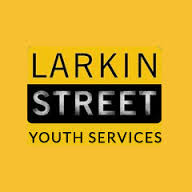

We recently relocated our offices when this great organization took over the entire building in which we were renting. It was a bittersweet encounter. We were sorry to be leaving our headquarters for the past two years, but lucky to meet the people from this organization, which works tirelessly to help homeless and underprivileged youth in the San Francisco Bay Area. There were two 4 ft x 12 ft dry-erase boards in our main computer room that we could not take to our new office. So, we asked the Larkin Street people if they would like to have them, and they said, “yes.” Another example of how our foundation finds creative re-use for resources.
Curry Senior Center
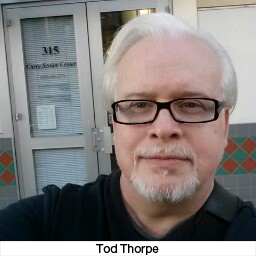
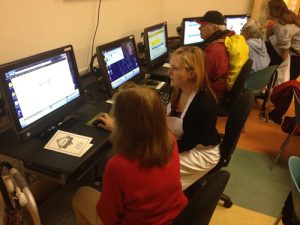
In the heart of San Francisco, Curry Senior Center has been a leader and a lifeline to seniors for more than 40 years. Right in their own neighborhood, seniors can easily access a wide range of essential services through Curry, from healthcare to housing and everything in between: It is comprehensive care in a single setting.
This is another local San Francisco organization that serves a growing underserved community, our aging low-income population, providing housing, meals and social services, is Curry Senior Center. Being a media-related organization, we created a video for Curry’s website, which focused on their demographic and how they help Seniors. We also donated a large collection of animation art from our collection to Curry for use by them as silent auction items in their annual fund-raiser. Working with Tod Thorpe, the development director at Curry, we identified the areas in which small resources can be stretched and have major effects on the population being served.
The Library of Congress
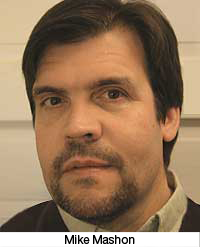
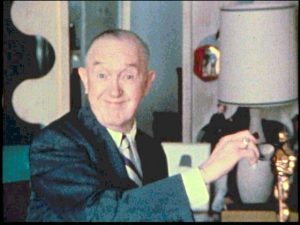

This year, as part of our focus on film and audio visual preservation, we donated a number of items to the National Audio-Visual Preservation Center, including a recently restored home movie of film comedian Stan Laurel (in a brand new 35mm color print), the lost prologue for Arnold Schwarzenegger’s first film, “Hercules in New York,” (also in a 35mm print), as well as an unknown sound recording of an evening at The White House called “Music for the White House,” with narration by screen legend Gregory Peck, and music by The Westminster Choir and the Marine Band, directed by American composer, Frank Lewin. All of these items are not only part of Hollywood history, but also U.S. history, and are rare documents that must be preserved. Thanks to Mike Mashon of the Library of Congress for coordinating this effort with our foundation.
Teatro Nagual
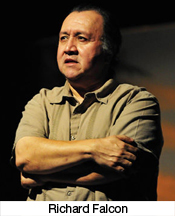
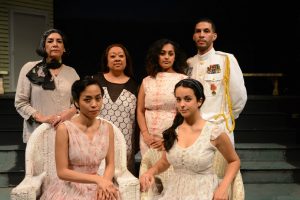
There are many small theater groups all around the State of California, but very few of them are run on the high professional level of Teatro Nagual. Based in Sacramento, California, and working under the direction of Richard Falcon, an actor and director, this group presents important plays with Latino subject matter.
Because fund-raising is very important to organizations like Teatro Nagual, we decided, in lieu of a small cash grant, to provide them with some tools and products that would be useful in fund-raising. Specifically, we provided a large collection of animation art that can be used to thank donors or to be used in silent auctions at their functions.
In addition, we provided them with a large quantity of production supplies for their productions, including cloth, costumes, lighting equipment, and kitchen and serving equipment for their social events.
Small theater is very important to our cities and towns. It’s a unique audience experience not possible with TV, movies and other media, and gives local talent a stage on which to perform and share important ideas.
Repeace
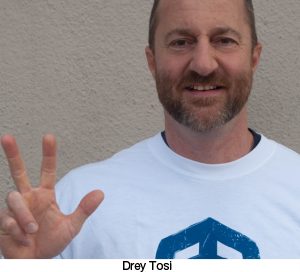
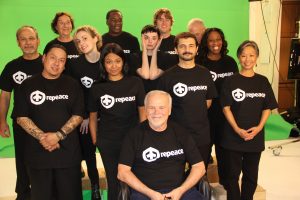
Repeace is an online social movement that wants to cut the ties between private interests and government with a very simple and straightforward method. Repeace wants to make accountability a profitable currency in times where institutionalized corruption has become endemic. By rallying people behind three positive pledges, Repeace can reunite citizens of each nation and create a market demand for accountability and move small-medium business to new standards of social responsibility (back off funding elections in exchange of support). The movement is called Repeace, which means “realize peace” and is inspired by John F. Kennedy’s alternative interpretation of peace, from his 1963 Commencement Speech at American University. Repeace is not only a timely, relevant project and a suggested solution, but a reflection on the current nation’s revolutions, which are, in essence, demands of accountability and a true attempt by all kinds of pacifists (Repeacers) at building a synergistic social leverage able to reclaim their completely corrupted institutions. See more at: http://repeace.com/about-repeace/about-mission-and-timeline #sthash.ssYPkRVl.dpuf
Repeace is a concept that we supported with technical assistance, production facilities and editing. Repeace is about the most important subject to all of us: world peace. Working with Repeace creator, Drey Tosi, we helped illustrate some simple steps that everyone can take to redefine peace as the absence of fear in people’s lives, not just the absence of war. Twelve actors from all races and ages were assembled in San Francisco to tell what peace means to them, and why peace is attainable if we all take three simple pledges, which people can do by going to www.repeace.com
Ron Merk Repeace Interview
Indieplex Online Magazine

What is Indieplex?
Indieplex is an online community magazine for and by indie filmmakers. Indieplex exists to promote the sharing of resources and knowledge for indie filmmakers, and help find the “missing pieces” needed to get films completed and into meaningful distribution.
Indieplex is supported by a grant from The Metro Theatre Center Foundation. Originally founded by Ron Merk and Dan Gomes, as The Filmmaker Resource Sharing Group, it has now been renamed Indieplex.
This site includes news of the film business and issues that concern all filmmakers. There is news about all aspects of production, post-production, digital technology and distribution, and several online forums.
The San Francisco AIDS Foundation
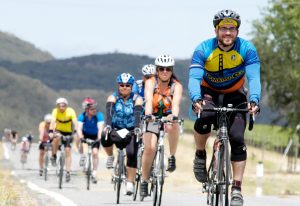
The AIDS Lifecycle Ride is an annual event that raises visibility and funding of this very important San Francisco institution. Each year, more than 2,500 bicyclists, road crew and equipment caravan from San Francisco to Los Angeles, raising millions of dollars for the foundation. This year, at their request, we are creating a special video for them which shows first-time riders how to deal with some of the day-to-day issues of doing this event.
For more photos from AIDS/LifeCycle, visit http://experience.aidslifecycle.com
Deutsche Kinemathek
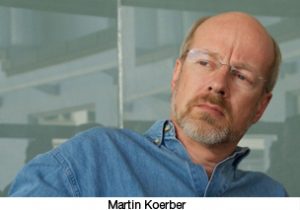
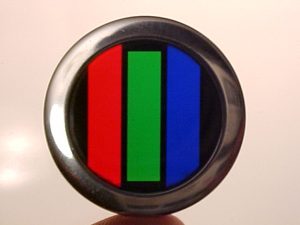
During his visit to the U.S.A. we learned from their Film Collection Curator, Martin Koerber, that the German Cinematheque held some home movies of Marlene Dietrich shot by director Josef von Sternberg in Kodak’s pre-Kodachrome color film system called Kodacolor. What they lacked to convert the films to a modern film stock were the original Kodacolor lenses. In our home movie collection, we had a complete set, and we happily donated these to the Deutsche Kinemathek so that the color from these rare home movies of Dietrich can finally be unlocked and seen by her many fans around the world. This is another example of how archivists working together can find missing items of equipment or film elements in places where they may have been sitting in the dark for many years. We look forward to seeing the results of the restoration of the color and the preservation of these homemovies.
The Oral History Project – The Academy of Motion Picture Arts and Sciences

For many years, the foundation’s own Ron Merk, worked with many of the great names of animation and film. In the early 1990s Ron sat several of these artists in front of his video camera, and interviewed them for many hours. These included Fleischer Studios animator, Myron Waldman, who worked on the Popeye cartoons, is credited by Max Fleischer as being the co-creator of Betty Boop, and who worked on many other Fleischer Studio films, including “Gulliver’s Travels.” Also interviewed was MGM animator, Irv Spence, whose name appears on many of the Tom & Jerry cartoons, made in the heyday of the studio, under Hanna and Barbera. Ken O’Connor, one of the principle designers of the Walt Disney Studio, designed some of the most famous sequences in Disney’s most famous feature films, including the chase of the witch up the hill at the end of “Snow White,” the pink elephant sequence in “Dumbo,” and The Dance of the Hours in “Fantasia” with its hippo ballerinas, alligators and ostriches. Richard Fleischer, the director of many live action feature films, and son of Max Fleischer, was responsible for some of the most successful feature films in Hollywood history, including “20,000 Leagues Under the Sea,” “Compulsion,” “Soylent Green,” “The Boston Strangler,” “Dr. Dolittle,” and many more.
Because Ron Merk had a close working relationship with these men, his interviews with them were very much like a personal conversation, in which each of them talked about their lives, careers, and professional relationships, but in a much more open way than they would have done in a regular interview. The results provide penetrating insights into what it was like being creative in Hollywood, especially at the top. The original Beta SP tapes were donated to the Academy, and will be made available for study and research. Some portions may be heard in a special oral history exhibit in the Academy Museum, scheduled to open in 2017.
Copies of these interviews were also donated to Cal Arts In Valencia, California, for access in their film studies program.
Save The Harding Theatre – A San Francisco Treasure
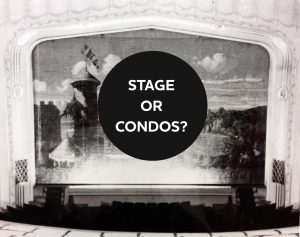
“Most neighborhood theaters in San Francisco have been lost to changes in the marketplace, re-development, and the greed of their owners. The Harding Theatre is one of the last remaining single screen theaters in the city, with the rare bonus of a full stage that can be used for live plays and other entertainment. The owners of this theater have in the past, unsuccessfully, tried to get permits to demolish all or most of the theater, and turn it into condos. They have rejected offers from the community of more than 4 million dollars, and now are intending to apply again to the San Francisco city government to re-start their condo project. This video is to remind everyone, especially the city officials, that this is a rare gem, a resource that could not be re-built for less than 40-50 million dollars today. Theaters offer us entertainment, information, and connections with the human race. Condos do not.”
The foundation created a video to bring the public’s attention to the possible loss of a great architectural treasure, and community and cultural resource in San Francisco. As the song on the sound track says, “There’s no business like show business.” Condos do not tell stories or connect us together. Sometime we have to stand up for what’s right, and fight the good fight. Once again the owners of this property have made a decision to try to destroy this beautiful theater and turn it into condos. We hope this video will remind city officials, the public and especially the property owners to do the right thing. This is not a political stand in any way. It’s about saving history and culture. There are plenty of other places to build condos. The Harding must be saved and have the lights turned on once again.
Check out hoodline.com for an update.
Karel Zeman
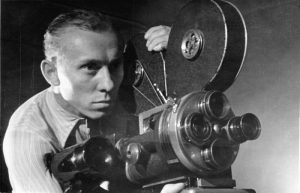
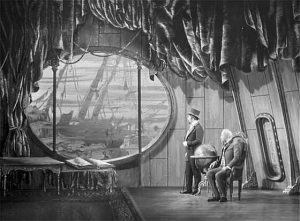
We are pleased to announce our support of the 4K restoration of the work of the most innovative of the Czech filmmaker, Karel Zeman. Part of being involved in film preservation is working with other like-minded organizations. We recently learned from James Mostecki, the film archivist at American Zoetrope, that the film THE FABULOUS WORLD OF JULES VERNE was being restored in Prague. Part of our holdings at the UCLA Film and Television Archive includes material for this film which is not in the National Archives in The Czech Republic. We recently sent our unique materials to Jim, who traveled to Prague, where the films were scanned at 4K and made part of the new restoration of this classic Czech fantasy film. Archives and individuals loaning materials to each other for important preservation work is an important aspect of the work of the international archive community. We are pleased to be part of this work.


